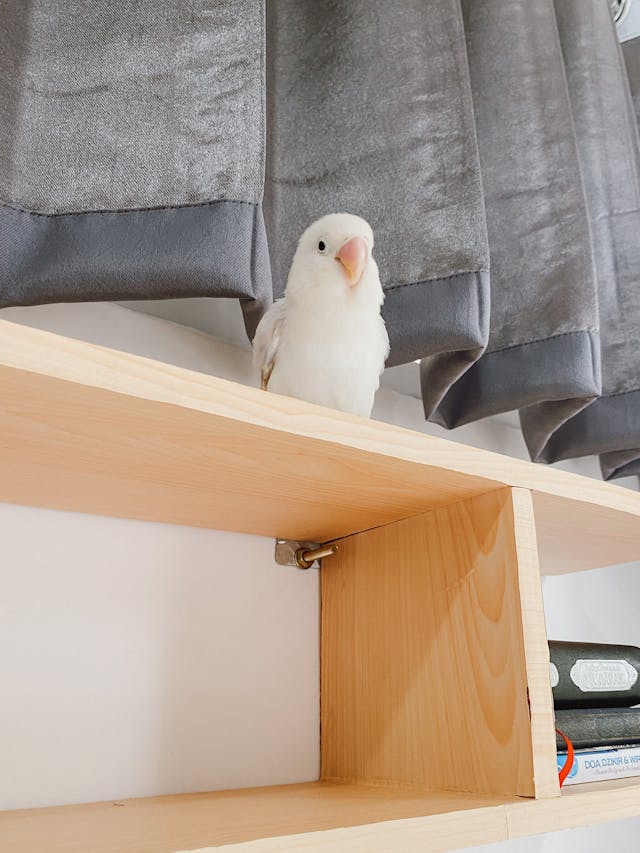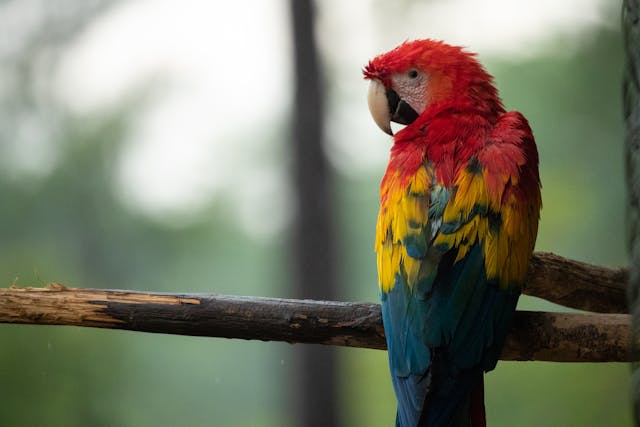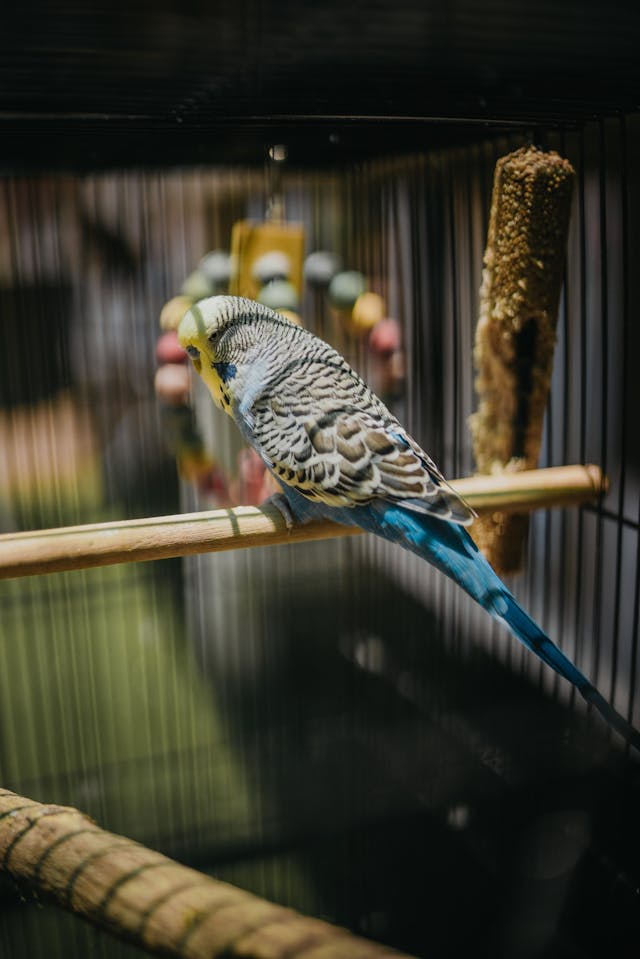Bringing a pet bird into your house can be a happy and rewarding experience. The vivid colours, endearing personalities, and occasionally the capacity to imitate human speech are well-known features of birds. It’s essential to know the expenses before bringing a feathery friend into your household. The cost of keeping a pet bird extends beyond the initial outlay and covers continuing costs for their upkeep. To enable you to decide wisely, we will dissect the many expenses related to pet bird ownership in this thorough guide, from the initial outlay to ongoing maintenance.
Outlines
First Purchase Price: A bird is expensive, depending on the species.
Cage and Accessories: Toys, perches, and cages must mount up.
Food and Supplies: Continued treats, vitamins, and bird food expenses.
Veterinary Care: Typical examinations and possible medical costs.
Training and Enrichment: The expenses of mental stimulation and training.
Unexpected Costs: Unexpected incidents and emergency costs.
The Exact Costs of Keeping a Pet Bird
Initial Purchase Price
Buying a bird can be expensive, depending on the species, age, and source. The typical costs for different bird species are broken down here:
The Little Birds
Budgets for Canaries, Budgerigars (Budgies), and Finches range from $10 to $100.
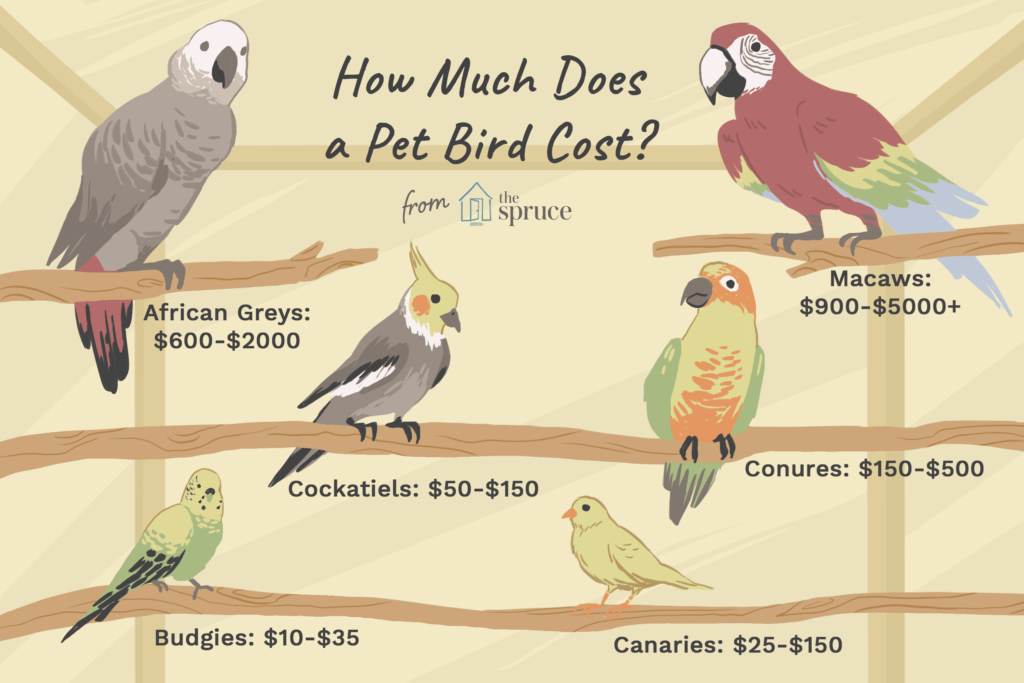
The Medium Birds
$50 to $150 for Cockatiels; $50 to $200 for Lovebirds; $100 to $300 for Parrotlets.
Large Birds
African Grey Parrots: $500–$4,000;
Amazon Parrots: $400–$3,000;
Cockatoos: $800–$5,000;
Macaws: $1,000–$5,000;
The age, rarity, and source of the bird—breeder, pet store, or rescue organization—all impact these costs.
Cage and Extras
Investing in a suitable cage for your pet bird is one of your most significant purchases. The bird’s type will determine the cage’s type and size. You will also require a number of accessories to guarantee the bird’s comfort and welfare.
Cage Prices
Medium Bird Cages: $100-300; **Small Bird Cages: $30-200; **Large Bird Cages*: $200-1,000 or more
Accessorie
Toys: $5 – $50 each (expect to replace periodically);
Food & Provisions
Giving your bird a balanced diet is essential to its well-being. The bird’s size and nutritional requirements will determine the cost of food.
Costs of Food
Monthly prices for *Seed Mixes* range from $10 to $30; pellets from $10 to $40; fresh fruits and vegetables from $10 to $20; and treatments and supplements from $5 to $20.
Veterinarian Care
Keeping your bird healthy requires routine medical attention. Birds should get yearly physicals and may need further medical care all of their lives.
Prices for Veterinary Care
Initial Health Check: $50–200; Annual Check-ups: $50–150; Emergency Visits: $100–300+; Medications: Variations greatly depending on the issue –
Specialised Avian Vet: Usually more expensive than general vets.
Training and Enhancement
Intelligent beings birds need training and mental stimulation to survive. Investing in their physical and emotional health can improve their quality of life.
Cost of Training and Enrichment
$20 to $50 each session for training classes; $10 to $50 for books and resources; and variable depending on materials for do-it-yourself toys and enrichment.
The Unexpected Costs
Unexpected costs related to owning a pet bird can include replacing broken equipment or emergency veterinarian treatment. Budgeting for unanticipated expenses makes sense.
Emergency Fund
Suggested Savings: $500–$1,000 for unforeseen costs.
Monthly and yearly total expenses
(This is an approximate monthly and yearly cost of pet bird ownership)
The Monthly Costs
Food and Supplies: $30 – $100 ;
Toys and Accessories: $10 – $50 ;
Veterinary Care: $10 – $25 ;
Whole Year Costs
The prices for food and supplies range from $360 to $1,200;
Toys and accessories from $120 to $600;
Veterinary care from $120 to $300;
Training and enrichment from $240 to $600.
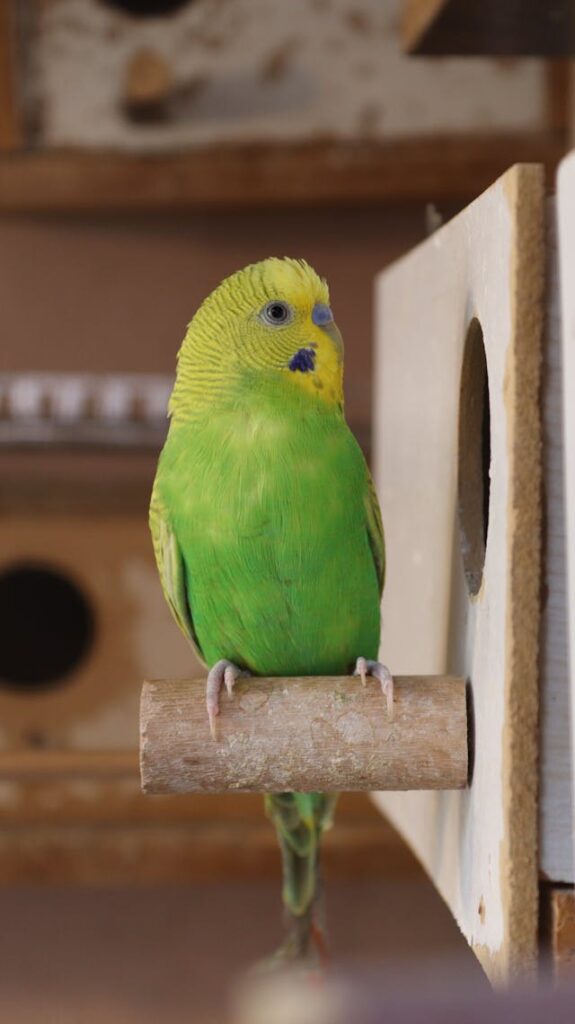
Making a Knowledgeable Choice
When considering bringing a pet bird into your home, add all the related expenses. Even while the initial outlay of funds may be reasonable, the continuing costs of food, attention, and medical treatment can increase quickly. Here are some pointers to enable you to decide with knowledge:
Look Up the Species
The costs and requirements of different bird species differ. Find out about the food needs, cage size, and any health problems of the particular species you’re interested in. More giant birds, for instance, typically live longer and require more complicated care, which, over time, can raise expenses.
Budget for Extended Care
Several kinds of birds can live for several decades. Make sure you’re ready for the sustained financial commitment. Making a budget that accounts for all expected costs might help you manage your money and prevent unpleasant surprises.
Do Think About Adoption
More reasonably priced and giving a bird in need a loving home is adopting a bird from a rescue group or shelter. Generally speaking, adoption fees are less than buying from a breeder, and rescue birds frequently have their first round of immunizations and health exams.
Make an Emergency Plan
An emergency fund is a must. Setting aside an emergency fund will help your bird get quick medical attention when needed and give you peace of mind because unexpected veterinarian bills can be expensive.
Conclusion
A companion, source of joy, and entertainment, owning a pet bird may be a satisfying experience. Knowing the whole range of expenses related to their care is crucial, though. The initial outlay for their habitat and food, as well as continuing costs for veterinary care and enrichment, is a large financial commitment. Your money can be well managed and your feathery companion can have a loving and healthy home if you do your homework and budget ahead for these expenses.
A long-term commitment, bringing a bird into your house calls for serious thought and budgetary preparation. You can guarantee your pet bird has a happy, healthy life while nevertheless enjoying the many advantages of bird ownership with the proper preparation.

